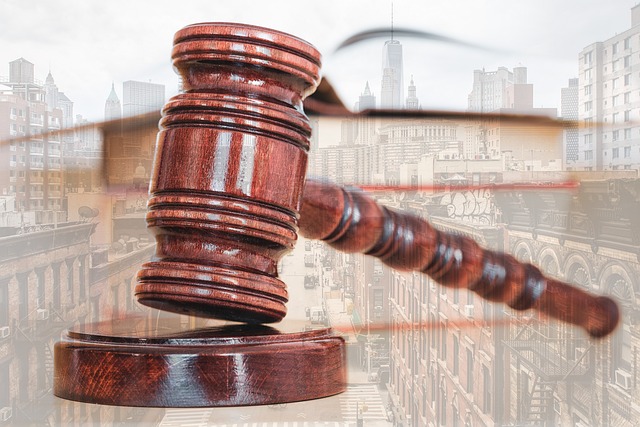Mail wire fraud, a growing digital age concern, exploits trust through deceptive electronic communication. Defense counsel play an indispensable role in navigating complex cases, uncovering nuances, and developing robust defenses. Their expertise in criminal procedure ensures fairness, protects rights, and can lead to the dismissal of charges. They scrutinize evidence, challenge questionable practices, and advocate for clients' rights, especially in high-stakes financial transactions, thereby maintaining procedural integrity and preventing wrongful accusations.
Mail wire fraud, a sophisticated crime, exploits digital communication channels, posing significant threats to individuals and businesses. This article offers a comprehensive guide to understanding mail wire frauds, delving into their legal framework, with a focus on the crucial role of defense counsel within criminal procedure. We explore key components of this process, successful case studies, and practical strategies for prevention. By examining these aspects, we aim to equip readers with valuable insights into navigating and defending against mail wire fraud charges.
- Understanding Mail Wire Frauds: A Comprehensive Overview
- The Legal Framework: Criminal Procedure and Its Components
- Defense Counsel's Role in Detecting and Preventing Mail Wire Fraud
- Case Studies: Successful Defense Strategies Against Mail Wire Fraud Charges
Understanding Mail Wire Frauds: A Comprehensive Overview

Mail wire fraud is a sophisticated crime that has become increasingly prevalent in today’s digital age. It involves the deceptive use of electronic communication to manipulate individuals into transferring money or sensitive information, often with the promise of substantial gains or urgent resolutions. This fraudulent scheme exploits people’s trust and naivety, making it a significant concern for both individuals and organizations alike.
Understanding mail wire fraud requires recognizing its various forms, including phishing, spoofing, and impersonation. Perpetrators often pose as legitimate entities, such as banks or government agencies, to gain victims’ confidence. The role of defense counsel in high-stakes cases is pivotal; they must navigate complex legal procedures, uncover the nuances of each case, and develop robust defenses. In many instances, a well-crafted legal argument can lead to the complete dismissal of all charges, protecting individuals and businesses from the far-reaching consequences of mail wire fraud. This is especially pertinent in philanthropic and political communities where financial transactions are frequent and sensitive.
The Legal Framework: Criminal Procedure and Its Components

The legal framework surrounding mail wire fraud cases is intricate and involves a meticulous process known as Criminal Procedure. This procedure plays a pivotal role in ensuring fairness and justice for all parties involved, especially when tackling complex white-collar and economic crimes. One of its key components is the crucial role Defense Counsel plays. These legal professionals are not merely advocates but also navigators through this labyrinthine process, guiding their clients to navigate the system effectively.
The defense counsel’s expertise in criminal procedure is essential during every stage, from pre-trial motions to jury trials. He or she ensures that his client’s rights are protected, providing strategic insights and legal arguments to challenge the prosecution’s case. This thorough understanding of the system enables defense attorneys to present a compelling defense, offering their clients the best chance at a fair outcome in cases involving mail wire fraud—a type of crime that demands meticulous attention to detail and an in-depth knowledge of the law.
Defense Counsel's Role in Detecting and Preventing Mail Wire Fraud

Defense Counsel plays a pivotal role in detecting and preventing Mail Wire Fraud. Throughout all stages of the investigative and enforcement process, lawyers are crucial in ensuring procedural integrity. They scrutinize evidence, challenge questionable practices, and advocate for their clients’ rights, protecting them from wrongful accusations.
In high-stakes cases of mail wire fraud, Defense Counsel’s expertise is invaluable. By understanding complex financial transactions and regulatory frameworks, they can identify potential pitfalls and anomalies that may indicate fraudulent activity. Their duty is to safeguard their clients’ interests, ensuring a fair trial and preventing unjust convictions in these intricate legal matters.
Case Studies: Successful Defense Strategies Against Mail Wire Fraud Charges

In the face of evolving mail wire fraud schemes, understanding successful defense strategies is paramount. Case studies highlight several effective approaches taken by defense counsel to counter such charges. One key strategy involves meticulous document examination and analysis to uncover discrepancies or anomalies in transactions that might be indicative of fraudulent activity. Defense Counsel plays a pivotal role in this process, utilizing their expertise to interpret complex financial data and present it in a comprehensible manner for the court.
Another crucial defense tactic is the interrogation of witnesses and experts, challenging the prosecution’s narrative through cross-examination. This involves a deep understanding of not just mail wire fraud laws but also economic crimes and white-collar offenses more broadly. Defense attorneys navigate all stages of the investigative and enforcement process, advocating for their corporate or individual clients while ensuring that procedural rights are respected. They also leverage legal precedents and statutes of limitations to bolster defenses, demonstrating the critical role of defense counsel in navigating the complexities of criminal procedure.
Mail wire fraud, a sophisticated crime, requires a robust legal response. Understanding these schemes and the legal framework surrounding them is pivotal. Defense counsel plays a crucial role in detecting and preventing such frauds by leveraging their expertise within the criminal procedure process. Through diligent investigation, strategic defenses, and staying abreast of case law, counsel can ensure fair outcomes for their clients. By examining real-world case studies, it’s evident that proactive defense strategies can successfully counteract mail wire fraud charges, underscoring the indispensable Role of Defense Counsel in Criminal Procedure.






